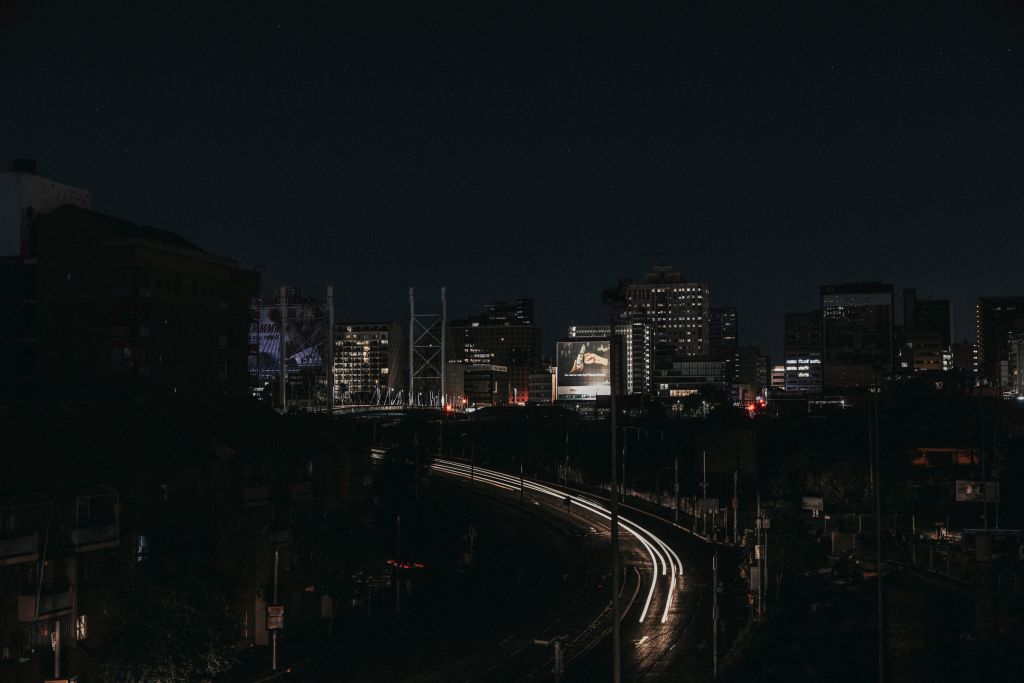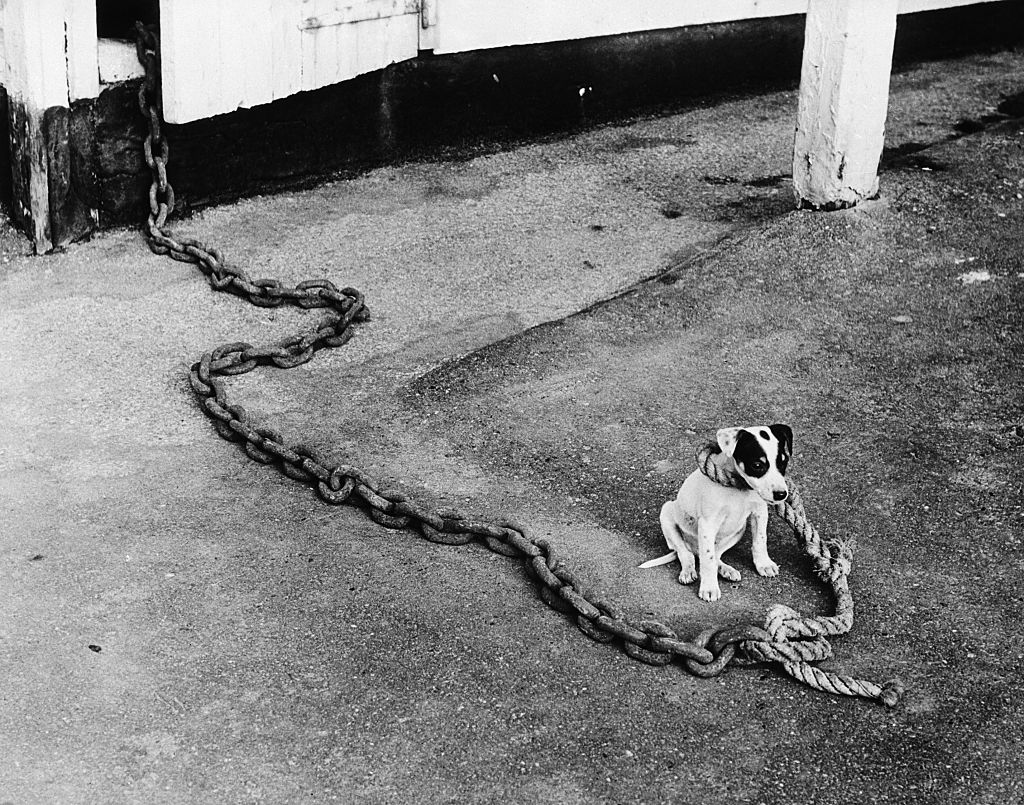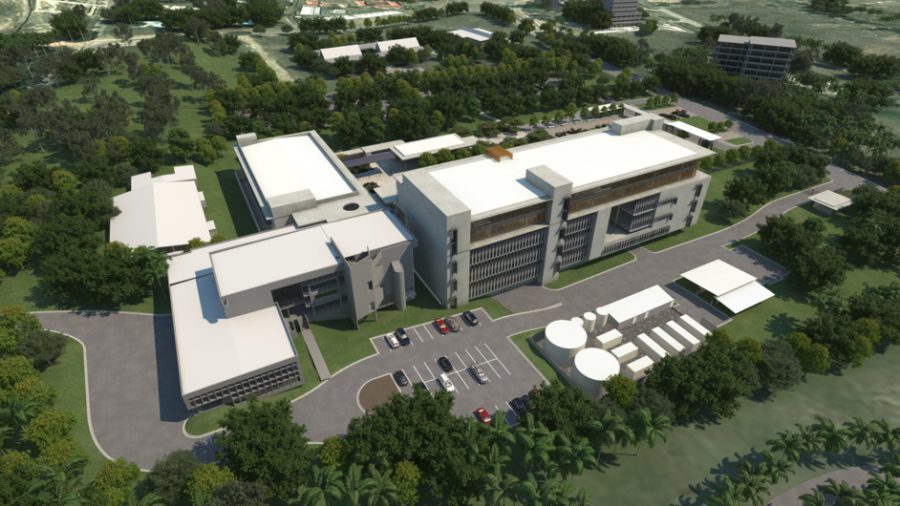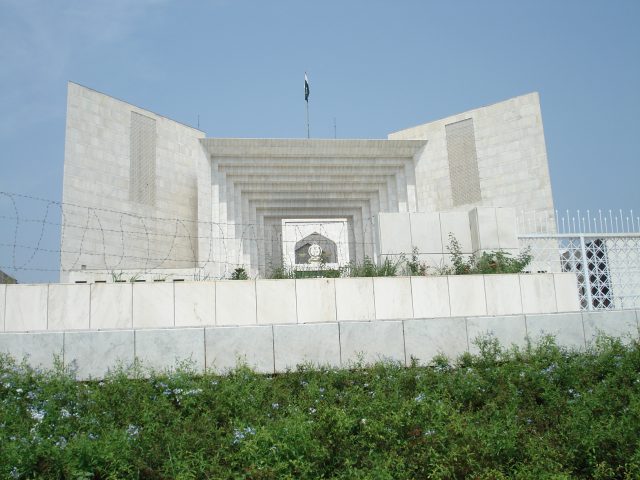South Africa’s power failures are a symptom of a deeper disease

It’s been so bad that it has even flickered across Western screens recently as one of those brief human-interest stories. The lights have gone out in South Africa.
Eskom, the state-owned power utility, has imposed severe ‘load-shedding’ on the country, switching off parts of the grid for many hours a day because of ‘severely constrained’ generation capacity.
For those who are living it, there’s little opportunity to skim to the next story. It’s less a human-interest piece than a slug in the solar plexus, materially and emotionally. That’s the mild version. The growing number of doomsday prophets see it as the apocalypse, or part of it—the beginning of South Africa’s long-expected death spiral.
Certainly, an already-bilious economy has taken a sickening hit. Five percent was lopped off GDP growth by load-shedding in 2022—and halfway through 2023, there were already more power cuts than in all of last year. The economy contracted in the last quarter of 2022 and narrowly avoided a repeat in the first quarter of this year. Forecasts for 2023 range between 0.1% and 0.3% growth.
There has been no shortage of mellifluous masterplans and roads to recovery. Following on from President Cyril Ramaphosa’s declaration of a ‘national state of disaster’ in February, government ministers and Eskom executives have become expert in the art of death by PowerPoint, if nothing else. The latest magic bullet is the announcement of a number of cooperative deals with Chinese power companies. Most South Africans have taken such assurances with a spadeful of salt.
But the notion that Eskom has inaugurated the country’s end times is simplistic. South Africa’s power crisis is more a national analogy than an apocalypse, the manifestation of a deeper malaise that has metastasised and is becoming more visible to the naked eye. The cancer in the body politic is catching up with it.
The roots of Eskom’s troubles lie in the period shortly after the end of apartheid. In the 1990s, as access to the grid was ramped up in formerly segregated black areas, Nelson Mandela’s government was warned repeatedly that electricity demand would outstrip supply by 2007 if new power stations weren’t built. Nothing was done; instead, a ban was placed on the construction of generators until 2004. And, lo and behold, the country plunged into its first round of load-shedding in late 2007. Within three months, US$6 billion had been wiped from the economy’s bottom line.
Superficial improvement after 2008 disguised an ongoing slide in the background. Poor planning was—or, more precisely, continued to be—conjoined to a haemorrhaging of human resources and systemic corruption. An urgent emphasis on racial transformation displaced a critical bloc of experienced managers and technicians, substituting it not with the most capable black alternatives but with the most politically connected.
The effects were both linear and exponential. The ability to maintain and build infrastructure plummeted in keeping with the loss of corporate memory and experience, while sleaze magnified the impacts. In 2011, a turbine at a major power station blew apart when an automatic cut-off system failed and there was no one in the control room to flick the switch manually; 600 megawatts of capacity, enough to power a city of half a million people, was sliced off the grid. Three years later, a furnace at the same plant exploded when a basic ignition sequence was mistakenly reversed.
Those were just two of the more spectacular incidents that highlighted the unremitting corrosion of operational capacity occurring beyond public view. Meanwhile, corrupt coal contracts leached hundreds of millions from Eskom’s coffers and resulted in the delivery of substandard product, damaging generators and causing more load-shedding. Stop-gap, emergency measures like diesel generators cost the utility nearly five times more per kilowatt hour, produced less electricity and opened a door to yet further corruption.
Construction of two new showpiece power plants began in 2007, but they are still not fully functional, 15 years down the track, and are billions over budget. One was completed in 2019, five years late, but was knocked out of action shortly after by a blast that resulted from ‘management failures’.
Ramaphosa’s accession to the presidency in 2018, replacing the notoriously corrupt Jacob Zuma, raised hopes of a turnaround at Eskom and elsewhere, but his redemptive impact has been indiscernible. Eskom’s latest CEO, Andre de Ruyter, resigned in early 2023 after blowing the whistle on criminal syndicates that had effectively taken over power stations and whose reach extended from the lowliest employees to the deputy president. De Ruyter has also alleged that the intelligence service was deployed against him when he was investigating the rot. Unsurprisingly, he hasn’t been thanked by the government, but instead threatened with legal action for publishing a tell-all book—a mere fleabite after having survived an attempted arsenic poisoning the day after he tendered his resignation.
Eskom is a microcosm of South Africa’s failures because its flaws are paralleled in every sector, at every level of society. The problem begins at the top but doesn’t end there. Just as Mandela’s administration was warned time and again of the power-deficit bear-trap—and then fell right into it—the African National Congress has ignored the lessons post-liberation Africa had taught ad nauseum, beginning in the 1960s.
As the inheritor of the last country to free itself of white rule, the ANC was not short of poor examples. It abdicated the opportunity to lead, instead submitting itself as a vehicle for instant gratification: it rewarded comrades from the struggle with patronage (the first priority) while splurging in the early days on populist promises (a subsidiary concern), just as Robert Mugabe and others had done to its north. In the process, both elements, patronage and populism, corrupted the process of Africanisation, prioritising speed and political orientation over capacity. Layers of perverse incentives have multiplied, creating a socioeconomic ‘operating system’ that rewards criminality, small and large, and penalises the diligent, black and white.
But this is not simply a tale of malfeasance, lawlessness and the gradual erosion of the common good. That would be to mistake symptom for cause, just as it would be to place the country’s woes at Eskom’s doorstep. Significant philosophical threads run through it all. A vast overestimation of apartheid’s capitalist fat reserves is one of them. Power stations weren’t built, the comrades were allowed to loot, and poorly equipped managers were appointed to complex roles because it was assumed that there was more than enough to go around—that the coffers could comfortably absorb the losses. It’s the same outlook that led to de Ruyter—against a backdrop in which Eskom’s debt had ballooned from US$2 billion in 2007 to US$25 billion in 2020—being told by a senior minister ‘to be pragmatic … to enable some people to eat a little bit’.
An unwillingness to engage with the mechanics of development is another attitudinal root. In the minds of many, the road to economic transformation has always been redistributive rather than cumulative and generational. But South Africa’s economy has never been large enough to reproduce white wealth via transfer, nor do such methods address the challenge of sustainability. Indeed, they war against it.
It’s been said that Eskom is too big to fail. The same words have been used on many occasions of South Africa. But with size comes momentum. The disease that has ravaged it is too extensive for it not to fail. Measured against even the most modest hopes that greeted the advent of the ANC’s rule, that has, in fact, already happened. The questions that remain are about the shape, rate and magnitude.





